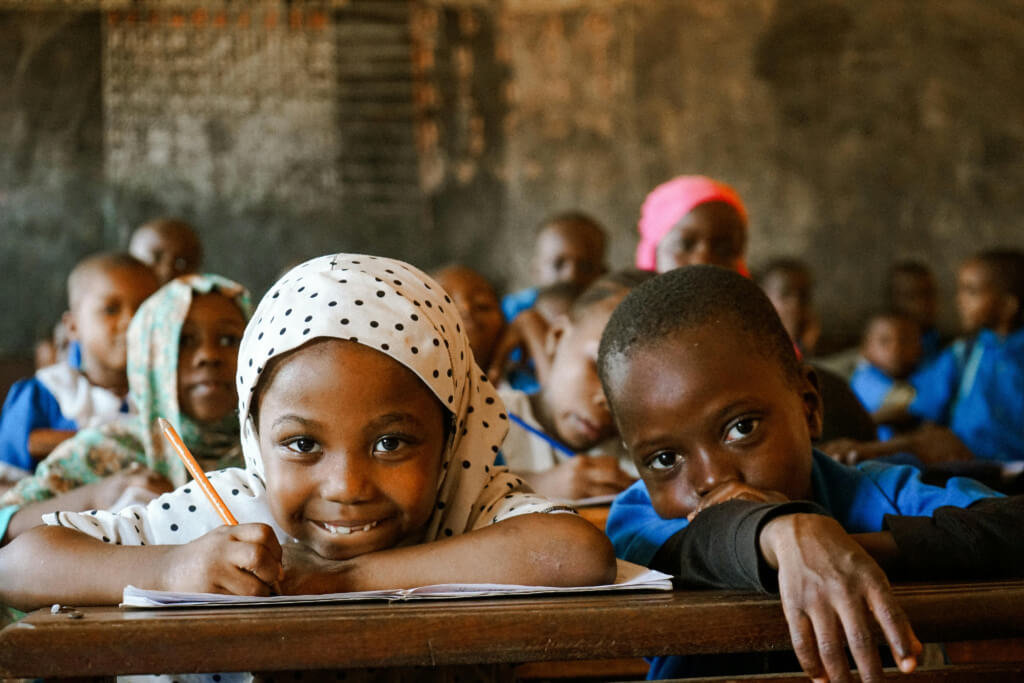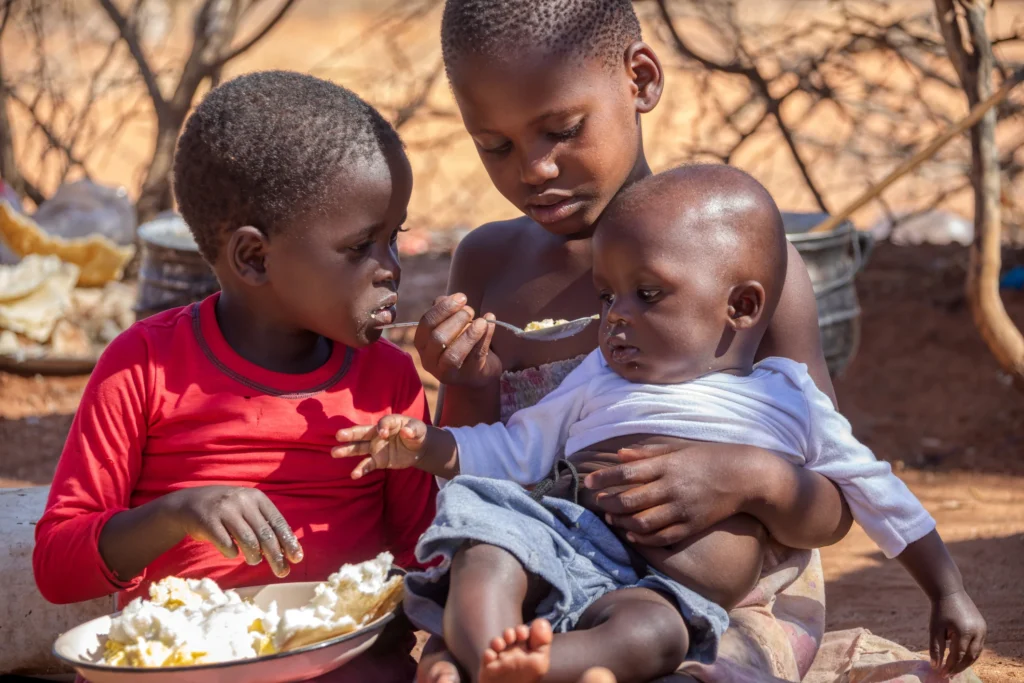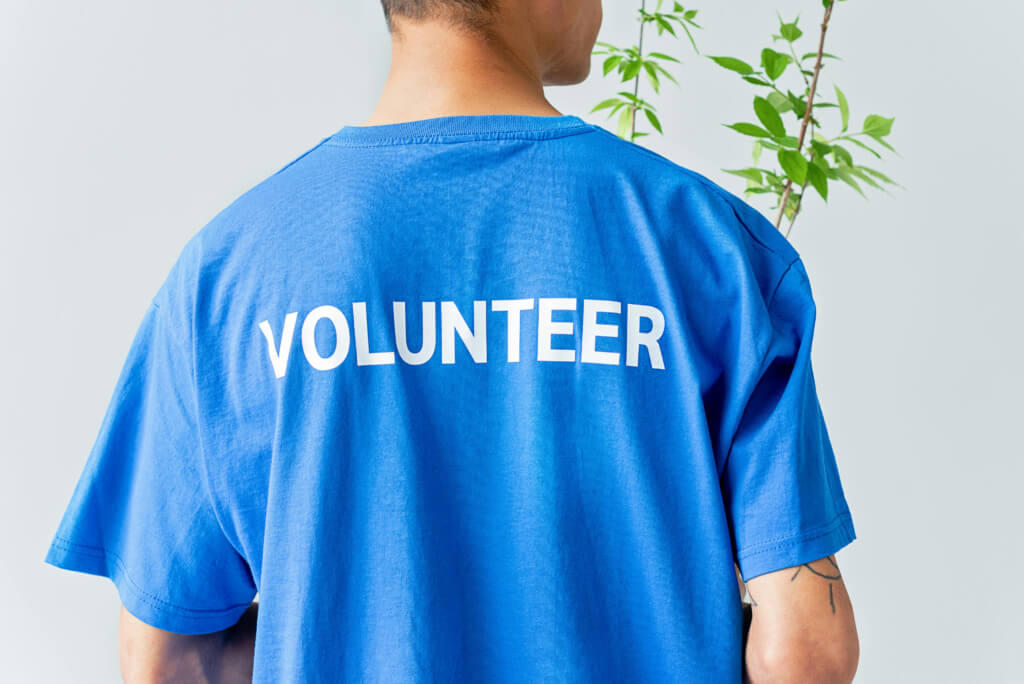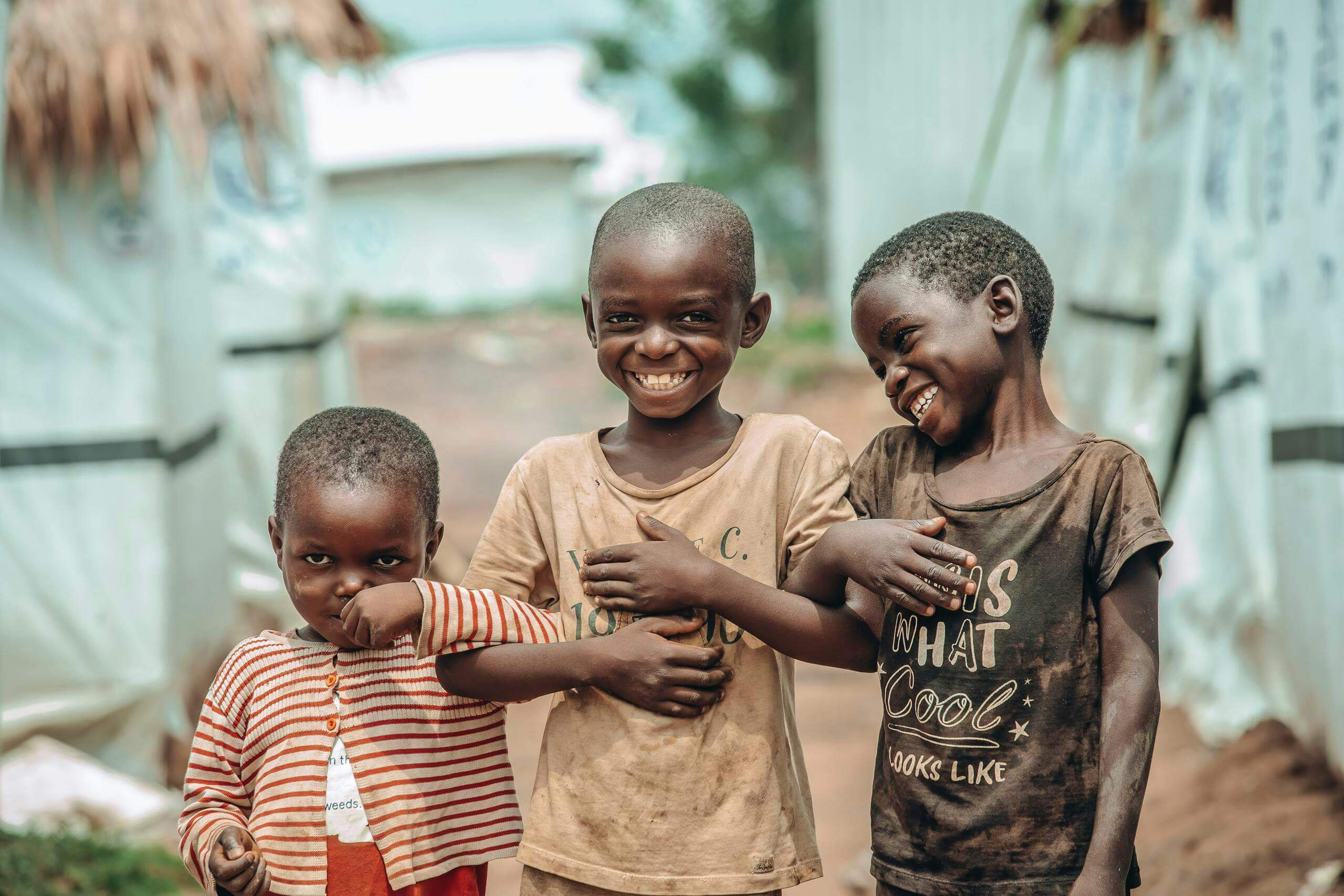
Problem Statement:
A number of studies conducted by organizations such as Base Flow indicate that:
There is 22% percent non-functionality rate of water points at the time though the country’s Water rate is around 67% Percent. There is a lack of safe drinking water points etc. Water, Sanitation and hygiene are still an issue, a lot of communities lose man-hours that could be used productively.
Only 17% borrow from Banks, 55% are financially excluded, and 74% are willing to save but save by hiding money elsewhere.
Low prices for agricultural produce also contribute to limited income sources.
Poor financial planning and management lead to lack of the spirit of saving.
Target group:
The target group is both men and women from poor households in rural and semi-urban areas: Emphasis is on vulnerable and marginalized Children, women headed Households; Orphan headed Households; Households keeping orphans; Households hosting chronically ill patients, the Elderly The program encourage the participation of men that live in the project sites are from the low-income brackets.
4.1 Integrated Water, Sanitation and Hygiene (WASH) Project.
Hot spot areas for cholera contamination, What a Serious Situation/concern?

The project is being implemented in Wirima Village in Traditional Authority Gumba in Mchinji. Wirima is a village basically inhabited by subsistence farmers whose main crop is maize. The maize is for consumption. The population of the village is 27 households with an average family size of six.
Most of the children in this village are under the age of 18 and the older ones have moved out to other areas.
The inhabitants of this village also do some piece works in gardens of surrounding villages to supplement their incomes so that they use the realised funds for basic day to day needs.
The village broke away 53 years ago from a bigger village some 5 kilometers away. Since the establishment of the village, they have never had a source of clean water. They rely on a locally dug unclean well. In summer, they supplement this water whose water table goes very low with water from some wetland locally called dambo for very unclean water which they share with livestock.
Source of Life Children Foundation (SLCF) Malawi visited the village and identified the necessity of assisting them with clean, potable water so that they are pulled away from health hazards like cholera, bilharzia and other waterborne diseases especially because the children are vulnerable and can easily contract these,
It is hoped that if clean water is introduced to this village, even inhabitants of some surrounding villages will benefit, and the area has very few boreholes with most in unusable state and abandoned.
4.2 Water sanitation and hygiene (WASH)
In response to Water sanitation and hygiene (Mchinji) according to Mchinji Strategic Economic Planning, SLCF Malawi through the funding from SLCF Australia Main Office has drilled one borehole in the year 2024 alone and four double pit latrines in the whole year which were done in every quarter. SLCF has tried to address hygiene issues in the communities:
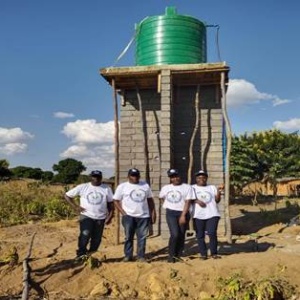
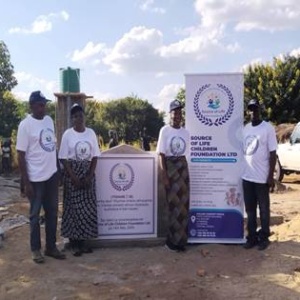
SLCF volunteers, Innocent, Francis, Shallom and Victoria pausing at water stand Tank.
In response to this evolving situation, SLCF stepped up with a new borehole to support the Mchinji District Council containing and preventing the spread of this preventable disease in more parts of the district where SLCF has its presence.

Despite the continuing efforts in the cholera outbreak response, and the need to intensify efforts, significant gaps exist. This includes the urgent need to strengthen surveillance system for early detection and management, provide and increase number of boreholes, water treatment, personal hygiene and water storage at household level; SLCF to increase timely engagement and dissemination of communications around cholera prevention, and positive hygiene practices.
SLCF Malawi, therefore, is appealing to its Main Office in Australia for continual support to address these challenges and enable us to better support the government in its efforts to contain the outbreak. Yes, more children in our communities are at high risk of contracting this preventable disease. We are highly indebted to thank SLCF head Office for the WASH facilities in 2024 where one borehole and three water Points and six taps were drilled and provided. Water taps have been functional and it is such an amazing month of some experience with such amazing technology in Malawi. See Pictures Below:-
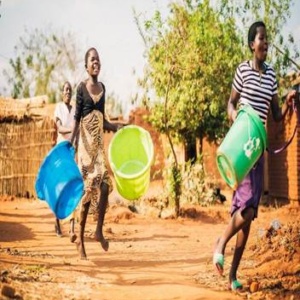
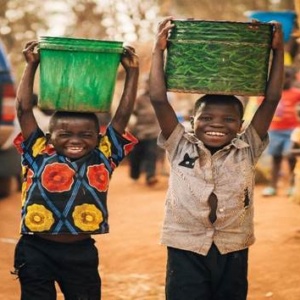
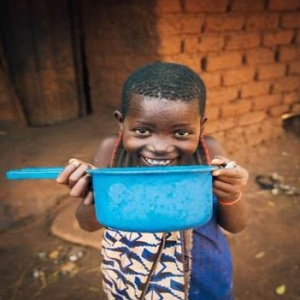
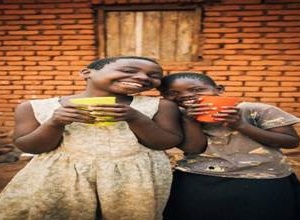
LIFE AFTER 50 YEARs
With the coming in of Source of Life Children Foundation, Children are able to draw water from the Water Points at the right time without having to wait. They are now able to attend morning classes. Through the provision of this source of water, they will be able to go to school and attend classes in clean clothes. SLCF continues to provide clean safe water for drinking, cooking and washing, making a healthier and proud community.
The 13-Year-Old Member of Parliament
By the time we arrive at our first village in Mchinji, Traditional Authority Gumba, a small crowd had already gathered around the borehole, anxious to talk about the difference that clean water has made in their community.
At the front of the pack, neatly lined up in matching golden yellow T-shirts, are five members of the local water committee. They stand tall, three men and two women, as they introduce themselves and their responsibilities one by one.
I am Gibo; I’m the chairman.
My name is Maliyena, I’m a mechanic.
Grey, tax collector.
Lackson, head of hygiene.
And then the final introduction — which comes from the seemingly shy 13-year-old girl on the end. “My name is Christina,” she says. “I’m the Member of Parliament.”
Hold on. The Member of Parliament?
A Note About Water Committees:
With every water project that SLCF: water implements, we require communities to elect a water committee. It’s a team of 5–8, usually half men and half women, who are responsible for the long-term sustainability of the project. They maintain the water point, develop a business plan so they can purchase parts for future repairs and educate community members about health, sanitation and hygiene. It’s a huge responsibility, and it almost always comes without pay.
“I was chosen because I know how to read and write.” Gibo responds. “But also, because I can maintain progress.”
Her committee members nod in agreement, and it becomes clear that Gibo is not your average 15-year-old.
No matter how many miles you live from Mkaladzi river, if your village lacks access to clean water, this is where you come for your daily supply. Women make four to six arduous trips to this river every day to collect water for their families. Which means that they’re very familiar with the predators that lurk in and around it.
By the time they were 11 and 12 years old, Maliyena and Elizabeth already knew the dangers that came with collecting water. They already knew the names of several women who had been killed by a crocodile or snake bite. But they also already knew that there was no alternative. So, despite their fear, the inseparable sisters came here each day, together.
As the oldest girls in a family of fourteen, Maliyena and Elizabeth did almost everything together. They felt a strong need to set an example for their siblings.
Strength. Determination. Teamwork.
The vibrant duo woke up every day at sunrise together. Swept the leaves from their compound together. Walked to school together. Came home and helped their mother turn land together. Walked to collect water together. Snuck in games of dodgeball with their friends together. Helped cook and clean up dinner together. And eventually went to bed giggling and laughing — talking about boys and planning their future together.
Maliyena and Elizabeth didn’t need to be told that “education means survival,” as their mom, Alina, put it. They adored school from the beginning.
Maliyena had been selected as a class monitor, an assistant to the teacher, responsible for cleaning the chalkboards and handing out books. Elizabeth was the health prefect, making sure that her classmates wore clean uniforms.
In many countries around the world, women and girls put their lives in danger every day to collect water for their families.
Many wake up before sunrise and spend up to four hours walking. And often, the water they bring home isn’t even clean.
The long, exhausting and dangerous task of walking for water is just one of the many reasons SLCF: water works to build community water projects close to people’s homes.
Having access to clean water within the community not only saves hours of time; it provides safety, health and hygiene. It directly impacts the future of women and girls in particular, and we believe it’s the first step out of poverty for rural communities all over the world.
Wirima Village celebrates the Launching of the water Projects in Traditional Authority Gumba


In May of 2024, Source of Life Children Foundation embarked on its first ever project campaigning trip to Traditional Gumba. My destination was the Wirima Village, native to the Chewa people.
My group travelled on dusty roads toward a remote village. Our small car was loaded with hoards of supplies and clean water. Children begged on the side of the road, holding up their empty water bottles and motioning to their parched mouths. Every mile we stopped to give a new group of kids water. As they ran back to their little huts, they cradled the water like it was gold. I can only imagine, I was beginning to understand the real gravity of the water crisis.
We arrived at the village made of sticks and trash thrown out along the road. We were treated like kings. Most of the village had never seen this before. We were introduced to everyone and the children were so excited,

especially to taste the different fruits we brought with us. The village leaders slaughtered ten chickens and a cow and graciously prepared it for all . We sat around the fire listening to stories of life in Wirima Village. I really expected more stories of hardship and struggles, but was surprised at how their stories were about family and faith, so full of hope. Songs and stories filled the day sky.
Throughout my day stay I learned many stories about life in Wirima Village. Indelibly etched into my memory is one mother who spoke with me. She had the cutest little boy. He was about one-year-old. Naturally, I asked the mother what the baby’s name was. I didn’t think this was unreasonable. She responded with a look of shock, as though she had never heard such a question before. I learned that the baby had no name; they just called him “boy” or “blessing”. He didn’t have a name because he would probably die. Many villages in Africa don’t name their babies until they are two years or older. The reality of 1 in 5 children dying before the age of five is a norm for families in that village, and across the world. Water borne disease is the leading cause of these early deaths.
There was just too much to process: thirsty children begging for life’s most important element, babies dying from waterborne disease, and a whole village burning up surrounding trees just to make a bit of charcoal to sell and to survive another day.
I returned to Office with a heavy heart and mind

I was looking forward to my first shower in all this day long from field. As I waited for the shower to warm my eyes fixated on the water spiraling the drain and it hit me, my “A-ha! moment”. Source of Life Children Foundation, I thought, the people I just spent some hours with would do anything for this water going straight down the drain! At that moment my life was changed. I knew I had to do something. If not me, then who? If not now, then when?
Just a few days later we drilled the borehole and provided a reticulated Water system with three different water points with six taps in Wirima village.
PICTURES BELOW WILL SHOW THREE WATER POINTS WITH TWO TAPS ON EACH POINT AND SHOWING WOMEN DRAWING WATER FROM THE POINTS
This project was implemented with funding from Source of Life Children Foundation Ltd Australia amounting to USD9100=MWK15,762,475.00


Point number 1


Point number 2


Point number 3
Today WASH Project continues to solve the Water Crisis in communities, including small portable straw filters kids can take to school, and rainwater catchment systems.
According to studies, of the 10,000 people that die each day due to water-related illness, 90% are children. Source of life Children Foundation is devoted to undoing that daunting statistic with technologies that already exist. Traditional Chief Gumba is excited with Source of Life Children Foundation to solve the Water Crisis through its Malawi Office. The Chief admitted that , “Every day our children face the risk of disease, malnutrition and hopelessness, therefore, breaking generational poverty starts with our children”


SLCF will continue resourcing the existing solution in the very communities we serve. We are full of opportunists; it’s in the DNA of the people we resource and in the individuals that resource us. We are not just a set of projects; we are a community that is helping plant a generation of planners. Thank you for your help!


CASE STUDY
It has been revealed and noted that in Traditional Authority Gumba more communities are living like animals where they need more support in different programs. See Stories in pictures below;


We live like animals, Judith says to me, of herself and her eight children. We don’t bathe or wash our clothes. But one day our help will come!!!. To collect water, someone from her family must make the hour-long walk down a narrow path, through Orange plants, lush banana trees, and terraced bean fields to the river.
Once the Plastic pails are filled, they must be carried back up. And the return trip on this steep incline takes two hours or more. Yet, this family makes the three-hour trek twice every day. Their water comes at a back-breaking price, so Judith doesn’t have room to choose how it’s used. It’s only for drinking and cooking. Yes, it can get hot up here. Yes, they walk long distances and farm during the day. But a bath is a rare privilege this high up and washing clothes — that’s an absurd waste of resources.


What I don’t understand is why they stay here. If there’s a river below Nkhungulu, why not go live beside it? This question haunts me as I become more familiar with these villages. In other communities, we work with communities who simply don’t have enough water. Here, the riverbanks are wide and filled to the top. It would be so easy to set up a home beside them and have water close at hand.
Judith, a widow, readily admits she would move if her family had enough money. The plots she cultivates are tiny, enough only to feed them and pay for a few necessities. Accumulation of savings – or anything else, for that matter – is unthinkable.


Children with willing smiles on their faces, waiting for water in buckets to settle so that they can drink. This is in the surrounding villages of Wirima in Mchinji district where SLCF is implementing its wash project, after their mothers heard a miracle of water provision at Wirima, they are envisioning the same to happen to them. What blows and puts me off is how these women collect water from a river bed for home use. This is real!!!! Pathetic!!!!! Yet the children seem to be happier and healthier!!!. Attention needed!!
11.0 LESSONS LEARNT
- Engaging the community during project implementation contributes to the sustainability of the project.
- The project is progressing well, there are resources at the start of project implementation from Source of Life Children Foundation.
- WASH project has started changing people’s lives.
- Rural communities work best under frequent supervision
- Early communication helps in effective execution of activities.
- Fostering an environment that encourages collaboration.
- Team work is essential in full execution of activities
10.0 Observation:
- The overall comment is that the WASH project has been a success and the SLCF Technology has also been warmly welcomed by the local leaders, the government of Malawi and community members
RECOMMENDATIONS
Planned activities to be implemented:
- Continue Integrating and monitoring the project.
- Continue assisting communities with Clean Water and livelihoods activities
- Train some executive water committee in Community Led Total Sanitation Practices
- Drill and provide new water sources to other communities if funds permitting
CONCLUSION
Source Of Life Children Foundation Limited should continue implementing similar projects to the surrounding Communities in the upcoming months. This WASH Project fully reflects the aspiration of multi community members and the Village level, the Area level, the district level, development partners, the religious institutions and other civil society organisations, the private sector and indeed Council members including Councillors, MPs and Traditional Authority. It is therefore viewed as a comprehensive road map that ensures inclusiveness, equity as all classes of society have contributed to its development.
Secondly, it is concluded that whatever Source Of Life Children Foundation is supporting to the Mchinji District Council is not outside the plans of Malawi Government, it is embedded in the five Key priority areas of the Malawi Growth Development Strategies III. This is a plus as implementation of designed projects will greatly contribute to the sustainable growth of the economy and enhance the livelihood of people’s life.




